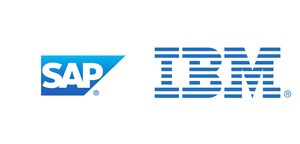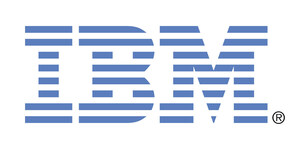IBM and Guang Dong Hospital of Traditional Chinese Medicine Analyze Digital Medical Records to Understand Treatment Efficacy
New Research Collaboration with South China's Largest Hospital Aims to Improve Treatment of Kidney Disease
SHANGHAI, June 3 /PRNewswire-FirstCall/ -- At the Smarter Cities Forum in Shanghai today, IBM (NYSE: IBM) announced a collaboration with South China's largest hospital, Guang Dong Hospital of Traditional Chinese Medicine, to apply new analytics technology to help doctors uncover trends and new knowledge about disease treatment from thousands of anonymous Electronic Medical Records (EMR). The tool will also enable clinicians to perform empirical studies on the efficacy of certain traditional Chinese treatments.
(Logo: http://www.newscom.com/cgi-bin/prnh/20090416/IBMLOGO )
Watch the video here: http://www.youtube.com/watch?v=TgSELgmzMYA
While more and more health data is available through EMRs and other systems, it can be difficult and time-consuming for clinicians to extract and compile relevant patient data in a way that allows them to quickly pinpoint critical issues and detect patterns in the data.
To help solve this problem, scientists at IBM Research have built a first-of-a-kind system called Healthcare Information Warehouse for Analytics and Sharing that clinicians at Guang Dong Hospital of Traditional Chinese Medicine will use to study the effects of Traditional Chinese Medicine in conjunction with Western medicine in treating Chronic Kidney Disease (CKD).
The tool stores and synthesizes anonymized patient data and provides doctors with detailed reports that correlates patients' conditions and demographics – such as age and gender as well as by the presence of other health conditions, like heart disease or diabetes. The ability to extract, sift through and combine relevant patient data and clinical events should help doctors customize treatment plans and provide them an understanding of how different populations are affected by and respond to medical treatments. The system may also assist researchers in conducting in-depth analysis of data for clinical and operational studies.
"As more and more medical data becomes available through electronic medical records and interoperable systems, there is a real opportunity for doctors and clinicians to use the information in new ways for improved patient care," said Lu Yu Bo, president, Guang Dong Hospital of Traditional Chinese Medicine.
Hypertension and diabetes are major public health challenges worldwide, particularly in the United States and China, and are two of the primary causes of CKD, a progressive loss of kidney function. For example, it is estimated that about 40 percent of people with diabetes will develop CKD. And, according to the U.S. Centers for Disease Control, CKD affects about 17 percent of all adults over the age of 20 in the United States. Researchers have chosen to focus on the condition not only because of the number of persons it affects, but also because few Western treatments for the disease exist.
The analytics solution follows the creation of another first-of-a-kind system created by IBM for Guang Dong Hospital. Known as the Clinical Health Records Analytics and Sharing, the health records technology tool was launched in 2009 to enable the sharing of electronic medical records across the hospital network and the integration of Eastern and Western medicine into one standardized system. Healthcare Information Warehouse for Analytics and Sharing can be used as an extension of the Clinical Health Records Analytics and Sharing tool or as a standalone system.
"Evidence-generation is a key step towards making raw health data more usable for clinicians at the point of care," said Bill Cody, senior manager, healthcare informatics, IBM Research – Almaden. "Our collaboration with Guang Dong Hospital will make it easier for physicians to extract and analyze key data about chronic disease treatment, paving the way for evidence-based and more cost-effective medicine."
The new tool also marks a significant technical achievement because of its ability to input and analyze large collections of complex XML-based documents, making the information they contain easily accessible using current IBM business intelligence technologies including Cognos, Infosphere and SPSS. In the future, the hospital also plans to study additional acute and chronic diseases. The system has also been designed with more flexibility and extensibility than other systems, allowing for uses outside of healthcare including finance, energy utilities and other industries that find benefit from analyzing large amounts of complex XML data.
IBM's track record of improving healthcare through scientific achievements and collaboration with healthcare companies dates back to the 1950s. In the last decade, IBM has collaborated with Scripps to understand how influenza viruses mutate, worked with European universities to develop better HIV antiretroviral therapy methods and launched the World Community Grid, which has done projects on cancer, AIDS, dengue fever among other healthcare innovations.
About IBM
For more information about IBM, visit www.ibm.com/research or www.asmarterplanet.com
For more information about Smarter Cities, visit www.ibm.com/shanghai2010
Media contact: |
|
Sara Delekta Galligan |
|
IBM Media Relations |
|
408-927-2272 |
|
SOURCE IBM
WANT YOUR COMPANY'S NEWS FEATURED ON PRNEWSWIRE.COM?
Newsrooms &
Influencers
Digital Media
Outlets
Journalists
Opted In





Share this article